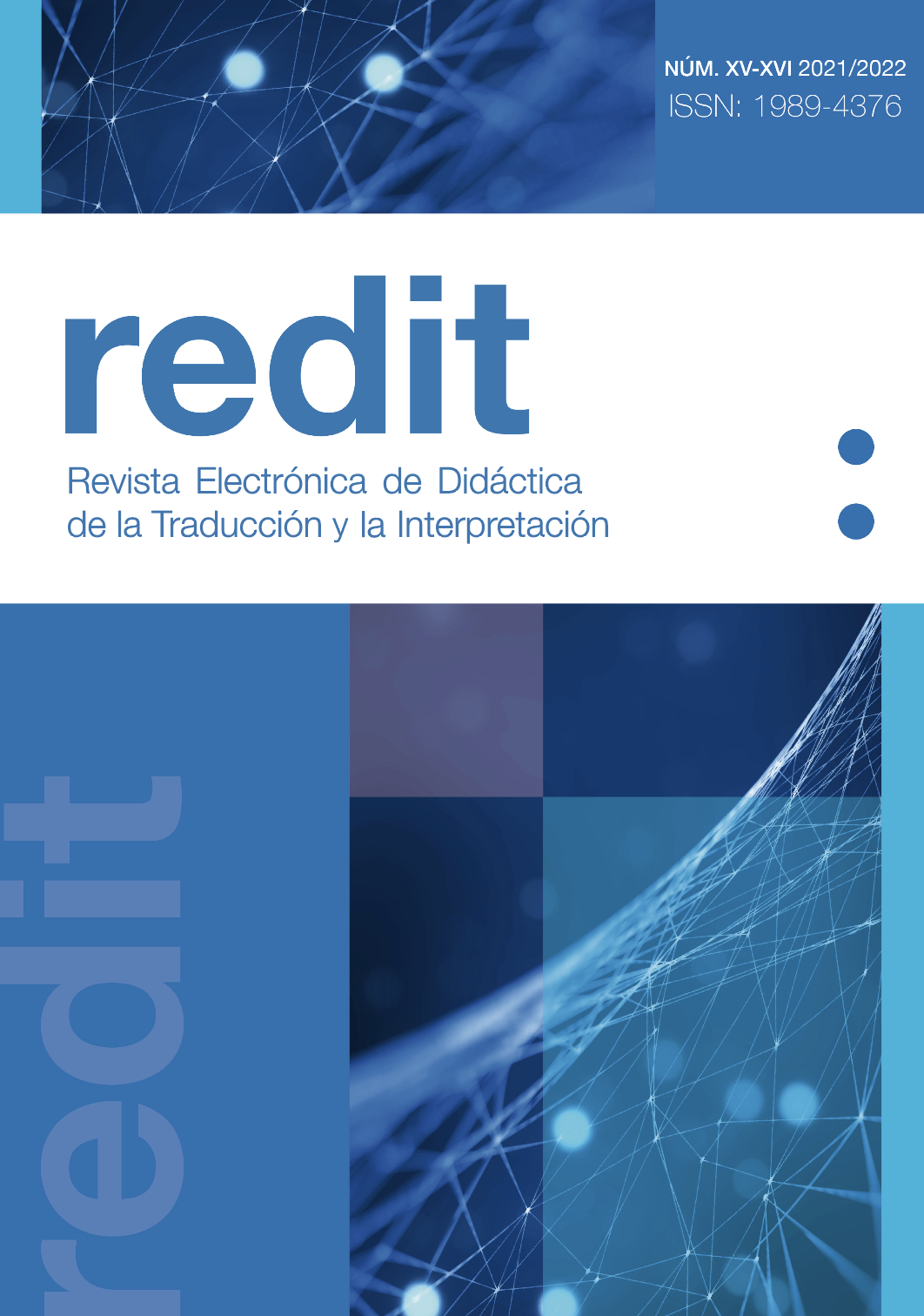The translation program of the Beirut School of Translators and Interpreters revised in light of the level scales in translation competence according to the EFFORT project
DOI:
https://doi.org/10.24310/redit.18.2024.17517Keywords:
translation teaching, translation competence, level scales, reference framework, quality standardAbstract
The objective of quality in the current context of IA revolution has become a great challenge for institutions that teach translation. Because there is no quality without clear and precise standards, the EFFORT project proposes a European reference framework for translation level scales. This article proposes to reconcile the translation teaching program at the Beirut School of Translators and Interpreters (ETIB) with the translation level scales proposed by the EFFORT project. The objective of this reconciliation is to verify the compatibility of the proposed translation level scales with the structure of the ETIB translation program and to highlight the necessary changes so that the ETIB can align the structure of its program with the proposed translation level scales.
Downloads
Metrics
References
Alexandre, Laurent. 2019. La guerre des intelligences: comment l’intelligence artificielle va révolutionner l’éducation. Paris: Librairie Générale Française.
Davidenkoff, Emmanuel. 2014. Le tsunami numérique: éducation, tout va changer! Êtes-vous prêts? Paris: Stock.
Harari, Yuval N. 2018. 21 leçons pour le XXIe siècle. Paris: Albin Michel.
Hurtado Albir, A., P. Rodríguez-Inés, F. Prieto Ramo, H. V. Dam, R. Dimitiu, M. M. Haro Soler, E. Huertas Barros, M. Kujamäki, A. Kuznik, N. Pokorn, G. M. W. Van Egdom, S. Ciubanu, O. Cogeanu-Haraga, T. Ghiviriga, S. González Cruz, K. Gotskowska, A. Pisanski Peterlin, A. K. Vesterager, J. Vine, M. Waslczynski, and K. K. Zethsen. 2023. “Marco Común Europeo de Referencia Para La Traducción-Nivel de Competencia C (Traductor Especialista): Una Propuesta Del Proyecto EFFORT.”
Hurtado Albir, Amparo. 2008. “Compétence En Traduction et Formation Par Compétences.” TTR 21(1):17–64. doi: 10.7202/029686ar.
Hurtado Albir, Amparo. 2015. “The Acquisition of Translation Competence. Competences, Tasks, and Assessment in Translator Training.” Meta?: Journal Des Traducteurs / Meta: Translators’ Journal 60(2):256–80. doi: 10.7202/1032857ar.
Hurtado Albir, Amparo, Christian Olalla-Soler, Anabel Galán-Mañas, Patricia Rodríguez-Inés, Anna Kuznik, Uniwersytet Wroc?awski, and Lupe Romero. 2019. “Establecimiento de Niveles de Competencias En Traducción. Primeros Resultados Del Proyecto NACT.” Onomázein Revista de Lingüística Filología y Traducción 43:01–25. doi: 10.7764/onomazein.43.08.
Hurtado Albir, Amparo, and Patricia Rodríguez-Inés. 2022. “Segunda Propuesta de Descriptores de Nivel.” MonTI. Monografías de Traducción e Interpretación 119–203. doi: 10.6035/MonTI.2022.ne7.05.
Lavault-Olléon, Élisabeth. 2011. “L’ergonomie, Nouveau Paradigme Pour La Traductologie.” ILCEA (14). doi: 10.4000/ilcea.1078.
Lavault-Olléon, Élisabeth. 2016. “Traducteurs à l’œuvre?: Une Perspective Ergonomique En Traductologie Appliquée.” ILCEA (27). doi: 10.4000/ilcea.4051.
Najm, Pierre, and Gina Abou Fadel Saad. 2022. “Les Compétences Des Enseignants de Traduction Au XXIème Siècle: Etude Empirique Qualitative Sur Le Cas de l’Ecole de Traducteurs et d’interprètes de Beyrouth (ETIB).” Lebende Sprachen 67(2):414–31. doi: 10.1515/les-2022-1006.
Najm, Pierre, and Gina Abou Fadel Saad. 2023. “Competencias de Los Docentes de Traducción En La Escuela de Traductores e Intérpretes de Beirut (ETIB) y El Perfil Del Formador EMT. Aproximación y Perspectivas.” Redit - Revista Electrónica de Didáctica de La Traducción y La Interpretación (15/16):27–44. doi: 10.24310/REDIT.2022.v1iXV-XVI.16627.
Schumacher, Perrine. 2020. “La traduction automatique neuronale?: technologie révolutionnaire ou poudre de perlimpinpin?? Compte rendu d’une expérience pédagogique.” Al-K?miy? (18):67–89.
Downloads
Published
How to Cite
Issue
Section
License

Este obra está bajo una licencia de Creative Commons Reconocimiento-NoComercial-SinObraDerivada 4.0 Internacional.






29.png)
